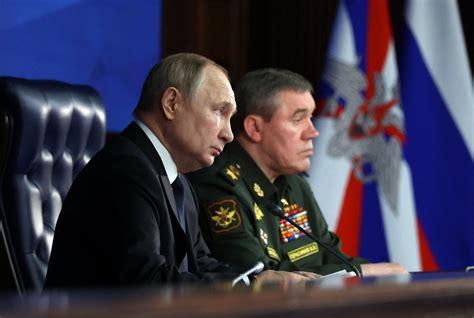
Putin May Carry Out ‘Mass Casualty Attacks’ Against NATO, Expert Warns
Russian President Vladimir Putin is capable of carrying out “mass casualty attacks” against members of the NATO military alliance, a prominent Russia expert has warned.
Keir Giles, a leading Russia expert at Chatham House, spoke with Newsweek after Polish Prime Minister Donald Tusk accused Russia of planning acts of sabotage worldwide, including “acts of air terror” targeting airlines.
Why It Matters
Russia’s relations with the West are at their lowest point since the Cold War. Russian officials have repeatedly insinuated that Moscow could orchestrate attacks against members of the NATO military alliance, in response to their support of Ukraine throughout the war.
What To Know
On Wednesday, after meeting with Ukrainian President Volodymyr Zelensky in Warsaw, Tusk emphasized the seriousness of the threat.
Is There Evidence of Russian Attacks in the West?
Western intelligence agencies said in November that Russia was suspected in orchestrating a plot to plant incendiary devices in packages aboard cargo planes bound for the United States and elsewhere.
The plot appears to have been linked to two blazes that occurred in Europe, namely in NATO member states Germany and the United Kingdom.
In 2024, Poland’s Internal Security Agency (ABW) also attributed Russian special services to a spike in incidents within the country and elsewhere in the EU and in NATO member countries.
The Kremlin has denied any involvement and has regularly dismissed Western claims that Russia sponsored acts of sabotage and attacks in Europe.
Why Would Russia Carry Out Such Attacks?
Moscow may carry out attacks for demonstrative purposes over what it considers to be retaliation for Western decisions that have led to Russian setbacks in the Ukraine conflict, Giles told Newsweek, such as Washington relaxing restrictions on what Kyiv can do with U.S.-supplied long-range missiles.
“But in addition, of course, we’ve seen a pattern of attacks that looks like reconnaissance and probing for a future more serious combination of attacks across Europe for specific objectives, for example, in support of Russian objectives.
“If they are moving against a NATO state and wish to prevent movement across Europe, that would explain a lot of the interest in logistics links and railway networks and hubs that they have shown so far.”
“The key point is we should bear in mind that none of the restraints that any normal country would take for granted actually apply to Russia,” Giles said. “They’ve already demonstrated the recklessness that leads us to say they are plainly not ruling out mass casualty attacks.”
Russia has demonstrated that it is “not constrained by the thought of large numbers of innocent victims,” he added.
Is the US a Target?
President-elect Donald Trump has repeatedly said he would swiftly put an end to the war once he enters office. He has suggested that both Russia and Ukraine would make concessions in order to reach a peace deal.
“If Trump plays into Putin’s hands, as he is widely expected to do, then there is no point in Russia antagonizing the United States and that cozy relationship that they have with Trump,” Giles said.
“If, on the other hand, he comes out with a far less Russia-friendly policy and actually does unexpectedly, something which Moscow wouldn’t approve of, then we could expect that the campaign would extend to North America as well.”
What People Are Saying
Polish Prime Minister Donald Tusk said on Wednesday:
“I will not go into details, I can only confirm the validity of fears that Russia was planning acts of air terror, not only against Poland, but against airlines around the world.”
Kremlin spokesman Dmitry Peskov told reporters on Thursday:
“In general, this is another absolutely unsubstantiated accusation against Russia. Poland is well known for such unsubstantiated accusations. It often even tries to maintain leadership in this area compared to other European countries.”
What Happens Next?
Even as President-elect Donald Trump, who has frequently touted his close relationship with Putin, returns to the White House, concerns in NATO countries over potential Russian attacks are likely to continue.
Source » msn.com





